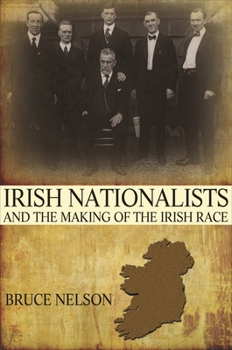Irish Nationalists and the Making of the Irish Race
Select Format
Select Condition 
Book Overview
This is a book about Irish nationalism and how Irish nationalists developed their own conception of the Irish race. Bruce Nelson begins with an exploration of the discourse of race--from the nineteenth--century belief that "race is everything" to the more recent argument that there are no races. He focuses on how English observers constructed the "native" and Catholic Irish as uncivilized and savage, and on the racialization of the Irish in the nineteenth century, especially in Britain and the United States, where Irish immigrants were often portrayed in terms that had been applied mainly to enslaved Africans and their descendants.
Most of the book focuses on how the Irish created their own identity--in the context of slavery and abolition, empire, and revolution. Since the Irish were a dispersed people, this process unfolded not only in Ireland, but in the United States, Britain, Australia, South Africa, and other countries. Many nationalists were determined to repudiate anything that could interfere with the goal of building a united movement aimed at achieving full independence for Ireland. But others, including men and women who are at the heart of this study, believed that the Irish struggle must create a more inclusive sense of Irish nationhood and stand for freedom everywhere. Nelson pays close attention to this argument within Irish nationalism, and to the ways it resonated with nationalists worldwide, from India to the Caribbean.Format:Paperback
Language:English
ISBN:0691161968
ISBN13:9780691161969
Release Date:December 2013
Publisher:Princeton University Press
Length:352 Pages
Weight:1.15 lbs.
Dimensions:0.8" x 6.1" x 9.2"
Related Subjects
History Political Science Politics & Social Sciences Social Science Social SciencesCustomer Reviews
0 rating





